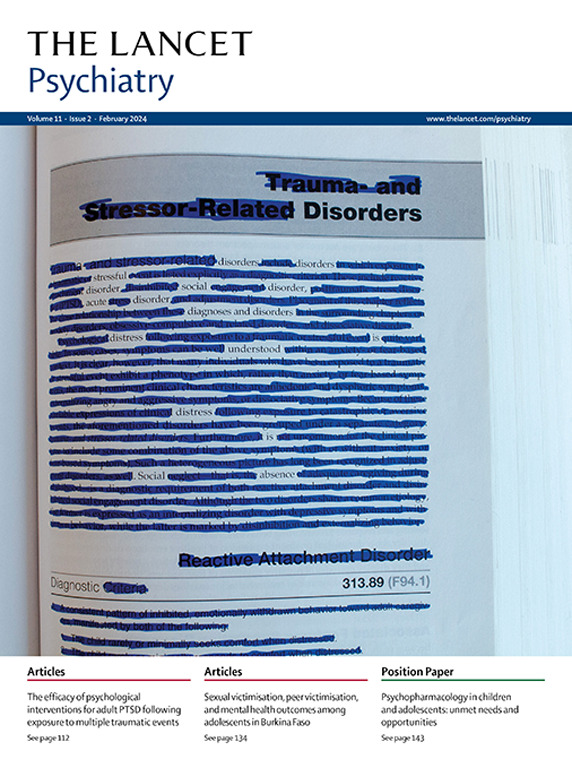INTEGRATE: international guidelines for the algorithmic treatment of schizophrenia
IF 30.8
1区 医学
Q1 PSYCHIATRY
引用次数: 0
Abstract
Schizophrenia is a mental illness involving multiple symptom domains and is often associated with substantial physical health comorbidities. Guidelines exist, but these tend to be country-specific and are often missing a concise yet comprehensive algorithmic approach. From May 1, 2023, to Jan 1, 2025, International Guidelines for Algorithmic Treatment (INTEGRATE) authors from all UN regions collaborated to develop a consensus guideline focused on the pharmacological treatment of schizophrenia. Following an umbrella review of the literature, input from expert workshops, a consensus survey, and lived experience focus groups, a consensus algorithmic guideline and associated digital tool were developed. Key recommendations include a focus on metabolic health from treatment initiation, timely assessment and management of non-response, symptom domain-specific interventions, mitigation of side-effects, and the prompt use of clozapine in cases of treatment resistance.INTEGRATE:精神分裂症算法治疗国际指南
精神分裂症是一种涉及多种症状域的精神疾病,通常与大量的身体健康合并症有关。准则是存在的,但这些准则往往针对具体国家,往往缺乏简洁而全面的算法方法。从2023年5月1日至2025年1月1日,来自联合国所有区域的《国际算法治疗指南》(INTEGRATE)作者合作制定了一份以精神分裂症药物治疗为重点的共识指南。经过文献综述、专家研讨会、共识调查和生活经验焦点小组的投入,制定了共识算法指南和相关的数字工具。主要建议包括从治疗开始就关注代谢健康,及时评估和管理无反应,针对症状领域的干预措施,减轻副作用,以及在治疗耐药的情况下及时使用氯氮平。
本文章由计算机程序翻译,如有差异,请以英文原文为准。
求助全文
约1分钟内获得全文
求助全文
来源期刊

Lancet Psychiatry
PSYCHIATRY-
CiteScore
58.30
自引率
0.90%
发文量
0
期刊介绍:
The Lancet Psychiatry is a globally renowned and trusted resource for groundbreaking research in the field of psychiatry. We specialize in publishing original studies that contribute to transforming and shedding light on important aspects of psychiatric practice. Our comprehensive coverage extends to diverse topics including psychopharmacology, psychotherapy, and psychosocial approaches that address psychiatric disorders throughout the lifespan. We aim to channel innovative treatments and examine the biological research that forms the foundation of such advancements. Our journal also explores novel service delivery methods and promotes fresh perspectives on mental illness, emphasizing the significant contributions of social psychiatry.
 求助内容:
求助内容: 应助结果提醒方式:
应助结果提醒方式:


